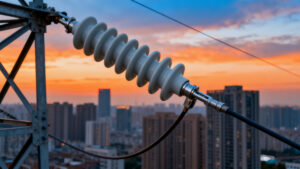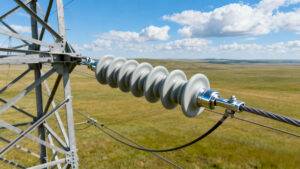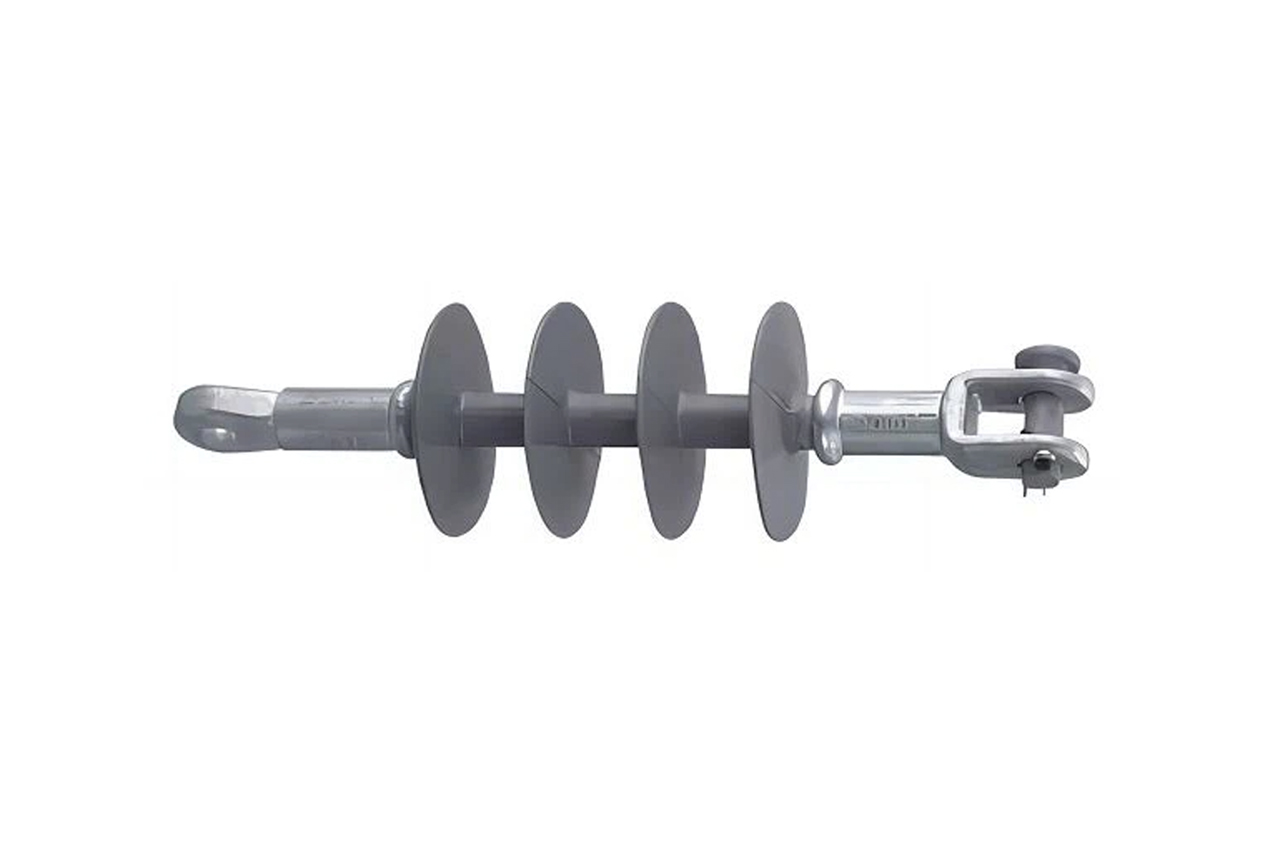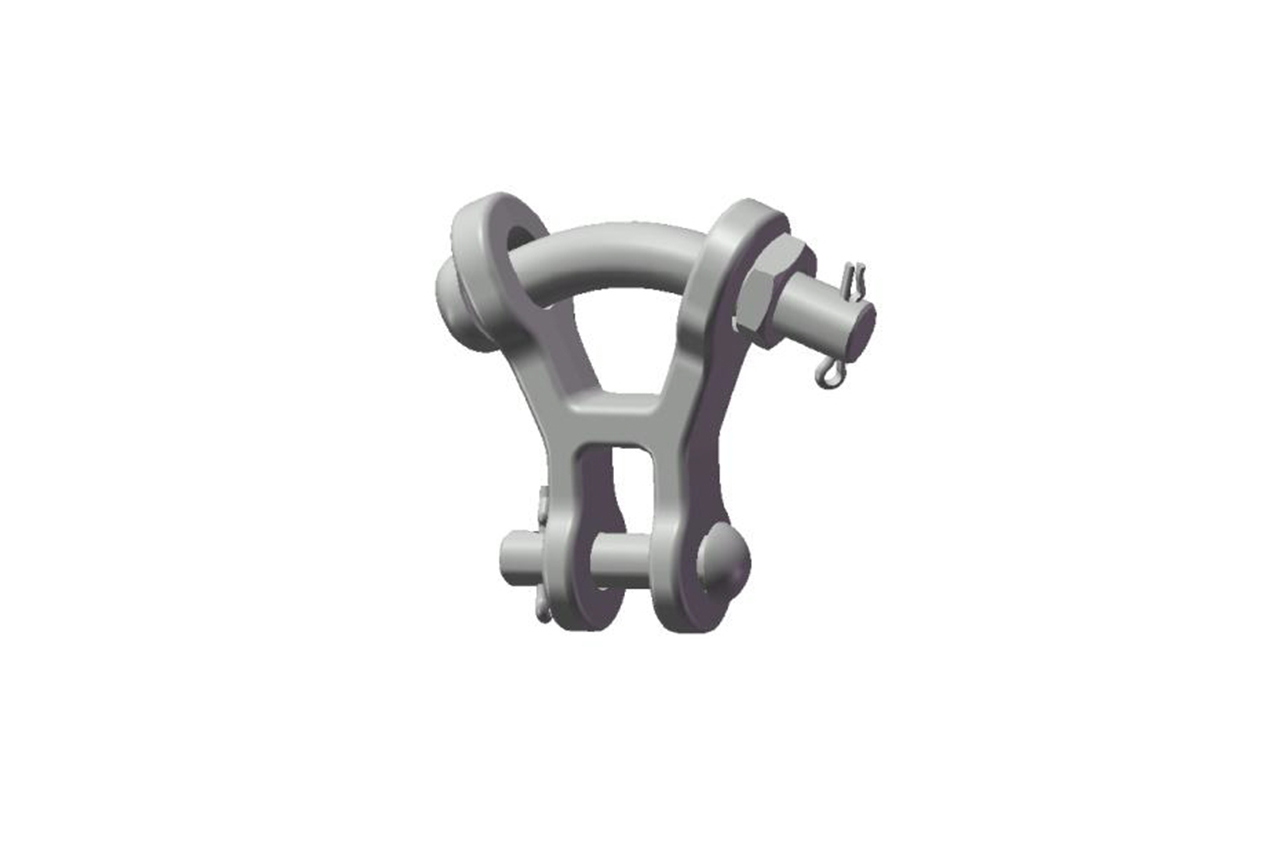Table of Contents
ToggleI. Core Definition: The Intelligent Insulation Pillar of Distribution Networks
Composite Pin Insulator is a rigid insulating device made of organic composite materials, specifically designed for 10-35kV distribution lines. It combines traditional porcelain insulator technology with modern polymer materials, using an epoxy fiberglass core rod for mechanical strength andsilicone rubber sheds for electrical insulation, achieving a lightweight, high-reliability line support solution.
The term “Pin” comes from its unique pillar-type mounting structure – the insulator base is directly fixed to the crossarm via threads or flange, forming a stable support point, while the top secures the conductor through a clamp.
 II. Structural Features: Three-Layer Composite Engineering Wisdom
II. Structural Features: Three-Layer Composite Engineering Wisdom
Load-bearing core:
Epoxy fiberglass pultruded rod: Tensile strength ≥600MPa
Diameter range: φ18-φ36mm (depending on voltage level)
Elastic modulus: ≥40GPa
External insulation:
High-temperature vulcanized silicone rubber (HTV)
Hydrophobicity: HC1-HC2 class
Shed design: Alternate large/small sheds for optimal rain washing
Metal fittings:
Top: Aluminum alloy clamp with ball-joint adjustment
Bottom: Hot-dip galvanized steel base with GB/T 97 standard threads
Connection interface: Crimping process ensuring mechanical strength
Table: Performance Comparison Between Composite and Porcelain Pin Insulators
| Parameter | Porcelain Pin Insulator | Composite Pin Insulator |
|---|---|---|
| Weight (10kV) | 2.5-3.5kg | 0.8-1.2kg (60% lighter) |
| Bending strength | 4-6kN | 8-12kN (100% improvement) |
| Pollution flashover voltage | Baseline | 2-3 times higher |
| Installation efficiency | Requires multiple people | Single-person installation |
| Expected lifespan | 15-20 years | 30+ years |
III. Technical Advantages: Breakthrough Innovations in Distribution Insulation
Excellent pollution flashover resistance:
Strong hydrophobicity maintains high insulation even when polluted
Operational data from Zhejiang coastal areas shows 90% reduction in pollution flashover failures
Outstanding mechanical performance:
Bending resistance up to 12kN, withstands level 10 winds
Good toughness, 5-7 times better seismic performance than porcelain
Easy installation and maintenance:
Weight only 1/3 of porcelain insulators, no heavy equipment needed
Maintenance-free design reduces maintenance workload by 70%
High safety and reliability:
No zero-value insulator issues
- No explosive damage when failing
 IV. Applications: Multi-Sector Coverage in Distribution Networks
IV. Applications: Multi-Sector Coverage in Distribution Networks
Urban distribution networks:
Compact design suitable for confined spaces
Aesthetic appearance blends with urban environment
Rural power grids:
Excellent pollution resistance adapts to rural conditions
Reduced maintenance needs lower operational costs
Special environments:
Coastal areas: Special anti-corrosion treatment
Industrial zones: Chemical corrosion resistant design
High altitude: Increased creepage distance design
Renewable energy integration:
Distributed PV access points
Wind farm collection lines
V. Technical Parameters: Precision-Engineered Performance
- Electrical performance:
- Rated voltage: 10kV/20kV/35kV
Dry flashover voltage: ≥110kV (10kV)
Wet flashover voltage: ≥65kV (10kV)
Lightning impulse withstand: ≥125kV (10kV)
- Mechanical performance:
Rated bending load: 8kN/10kN/12kN
Failure load: ≥16kN/20kN/24kN
Torsional strength: ≥100N·m
- Environmental adaptability:
Operating temperature: -40℃~+40℃
UV resistance: No aging after 1000 hours
Pollution class: Level IV (highest)
VI. Selection Guide: Scientific Choices Ensure Optimal Performance
- By voltage level:
- 10kV lines: 280-320mm height
- 20kV lines: 380-420mm height
- 35kV lines: 480-520mm height
- By environmental conditions:
- Clean areas: Standard creepage distance
- Polluted areas: Increased creepage distance
- Coastal areas: Special anti-corrosion type
- By mechanical load:
- Normal lines: 8kN specification
- Long span lines: 12kN specification
- Special requirements:
- Bird protection type: Added bird deterrent devices
- Ice/snow resistance type: Special shed design

 II. Structural Features: Three-Layer Composite Engineering Wisdom
II. Structural Features: Three-Layer Composite Engineering Wisdom IV. Applications: Multi-Sector Coverage in Distribution Networks
IV. Applications: Multi-Sector Coverage in Distribution Networks


